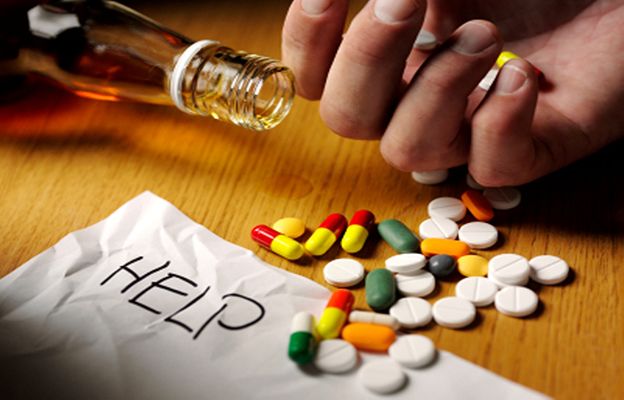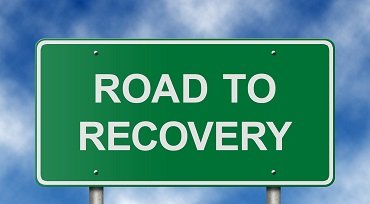ADDICTION: What it is? How does it feel? How is it treated?

Addiction is a brain disorder characterized
by compulsive engagement in rewarding stimuli despite adverse consequences.
As described by two groups of researchers, addiction exacts an "astoundingly high financial and human toll" on individuals and society as a whole through the direct adverse effects of drugs, associated healthcare costs, long-term complications (e.g., lung cancer with smoking tobacco, liver cirrhosis with drinking alcohol, or meth mouth from intravenous methamphetamine), the functional consequences of altered neural plasticity in the brain, and the consequent loss of productivity.
Examples of drug and behavioral addictions include: alcoholism, amphetamine addiction, cocaine addiction, nicotine addiction, opiate addiction, food addiction, gambling addiction, and sexual addiction.
People with an addiction do not have control over what they are doing, taking or using. Their addiction may reach a point at which it is harmful and most times it does.
The causes of addiction vary considerably, and are not often fully understood. They are generally caused by a combination of physical, mental, circumstantial and emotional factors. Sometimes addiction can generate from social pressure and what we expose our minds to.
A very distinct and popular type of addiction is substance abuse also known as substance use disorders (SUD)
A substance use disorder (SUD), also known as a drug use disorder, is a condition in which the use of one or more substances leads to a clinically significant impairment or distress. Although the term substance can refer to any physical matter, 'substance' in this context is limited to psychoactive drugs. Addiction and dependence are components of a substance use disorder and addiction represents the most severe form of the disorder.
People with a substance use disorder have distorted thinking, behavior and body functions. Changes in the brain’s wiring are what cause people to have intense cravings for the drug and make it hard to stop using the drug. These substances can cause harmful changes in how the brain functions. These changes can last long after the immediate effects of the drug — the intoxication. Intoxication is the intense pleasure, calm, increased senses or a high caused by the drug. Intoxication symptoms are different for each substance.
Over time people with addiction build up a tolerance, meaning they need larger amounts to feel the effects. This is how drug overdose occurs as addicts begin to need higher doses to get high and thus at some point taking more than the body can handle.
According to the National Institute on Drug Abuse, people begin taking drugs for a variety of reasons, including:
- to feel good — feeling of pleasure, “high”
- to feel better — e.g., relieve stress
- to do better — improve performance
- curiosity and peer pressure.
HOW DOES ADDICTION FEEL?
An addictive substance feels good because it stimulates the pleasure center of the brain through neurotransmitters such as dopamine and GABA. If you have a genetic predisposition, addictive substances don’t just feel good. They feel so good that you will want to chase after them. In someone who is not addicted, drugs and alcohol only produce a mild high. Therefore a non-addict cannot understand why the addict would go to such lengths, when it is clearly destroying their life.
People only stop using drugs and alcohol when they have suffered enough negative consequences. When you've suffered enough pain and enough regret you are ready to stop.
HOW IS ADDICTION TREATED?
Effective treatments for addiction are available. The first step on the road to recovery is recognition of the problem. The recovery process can be hindered when a person denies having a problem and lacks understanding about substance misuse and addiction. The intervention of concerned friends and family often prompts treatment.
A health professional can conduct a formal assessment of symptoms to see if a substance use disorder exists. Even if the problem seems severe, most people with a substance use disorder can benefit from treatment. Unfortunately, many people who could benefit from treatment don’t receive help.
Because addiction affects many aspects of a person’s life, multiple types of treatment are often required. For most, a combination of medication and individual or group therapy is most effective. Treatment approaches that address an individual’s situation and any co-occurring medical, psychiatric and social problems can lead to sustained recovery.

Medications can also be used to control drug cravings and relieve severe symptoms of withdrawal. Therapy can help addicted individuals understand pressure behavior and motivations, develop higher self-esteem, cope with stress and address other mental health problems. Treatment may also include:
Hospitalization Therapeutic communities (highly controlled, drug free environments) or sober houses Outpatient programs.
Behavioral Addiction: Treatment options include psychotherapy and psychopharmacotherapy (i.e., medications) or a combination of both. Cognitive behavioral therapy (CBT) is the most common form of psychotherapy used in treating behavioral addictions; it focuses on identifying patterns that trigger compulsive behavior and making lifestyle changes to promote healthier behaviors. Currently, there are no medications approved for treatment of behavioral addictions in general, but some medications used for treatment of drug addiction may also be beneficial with specific behavioral addictions.
Nicotine addiction: Another area in which drug treatment has been widely used is in the treatment of nicotine addiction, which usually involves the use of nicotine replacement therapy, nicotinic receptor antagonists, or nicotinic receptorpartial agonists. Examples of drugs that act on nicotinic receptors and have been used for treating nicotine addiction include antagonists like bupropion and the partial agonist varenicline.
Alcohol addiction: Alcohol, like opioids, can induce a severe state of physical dependence and produce withdrawal symptoms such as delirium tremens. Because of this, treatment for alcohol addiction usually involves a combined approach dealing with dependence and addiction simultaneously. Pharmacological treatments for alcohol addiction include drugs like naltrexone (opioid antagonist), disulfiram, acamprosate, and topiramate. Rather than substituting for alcohol, these drugs are intended to affect the desire to drink, either by directly reducing cravings as with acamprosate and topiramate, or by producing unpleasant effects when alcohol is consumed, as with disulfiram.
Psychostimulant addiction: As of May 2014, there is no effective pharmacotherapy for any form of psychostimulant addiction. Reviews from 2015 and 2016 indicated that TAAR1-selective agonists have significant therapeutic potential as a treatment for psychostimulant addictions; however, as of February 2016, the only compounds which are known to function as TAAR1-selective agonists are experimental drugs.
Key notes for Addicts
- You don't have to hit rock bottom: The purpose of articles like this is to show you the potential negative consequences of addiction so that you will be ready to quit before you've lost everything. You can imagine what it would be like to hit rock bottom. And that can help motivate you.
- Denial is a big part of addiction: Because addictive substances feel good, an addict will initially deny that they have a problem. In the long-run addiction isolates you from the people and activities and that mean the most to you.
- The most important consequences of addiction are social, emotional, and psychological. People usually think of the physical and economic consequences of addiction. "I don't have a serious addiction because my health is fine, and I haven't lost my job." But those are very late stage consequences. As far as work is concerned that's usually the last thing to suffer. You need your work in order to pay your bills, so that you can continue your addiction. When your work begins to suffer, you've slipped from being a functioning addict to a non-functioning addict.
The damage addiction does to your relationships and self-esteem is far deeper and takes longer to repair. You've hurt friends and family. You've disappointed yourself. You've traded important things in your life so that you could make more time to use. You've lived a double life. You've seen the hurt in your family's eyes, and the disappointment in your children's faces. Those are the consequences that can motivate you to begin recovery.
Recovery is never easy and requires the help of family, friends and sometimes even the community an addict finds themselves. No matter the amount of help extended to said addict, true recovery stems from the person's real and unwavering desire to want to be free of that addiction or substance abuse.

Congratulations! This post has been upvoted from the communal account, @minnowsupport, by djazzman from the Minnow Support Project. It's a witness project run by aggroed, ausbitbank, teamsteem, theprophet0, someguy123, neoxian, followbtcnews, and netuoso. The goal is to help Steemit grow by supporting Minnows. Please find us at the Peace, Abundance, and Liberty Network (PALnet) Discord Channel. It's a completely public and open space to all members of the Steemit community who voluntarily choose to be there.
If you would like to delegate to the Minnow Support Project you can do so by clicking on the following links: 50SP, 100SP, 250SP, 500SP, 1000SP, 5000SP.
Be sure to leave at least 50SP undelegated on your account.